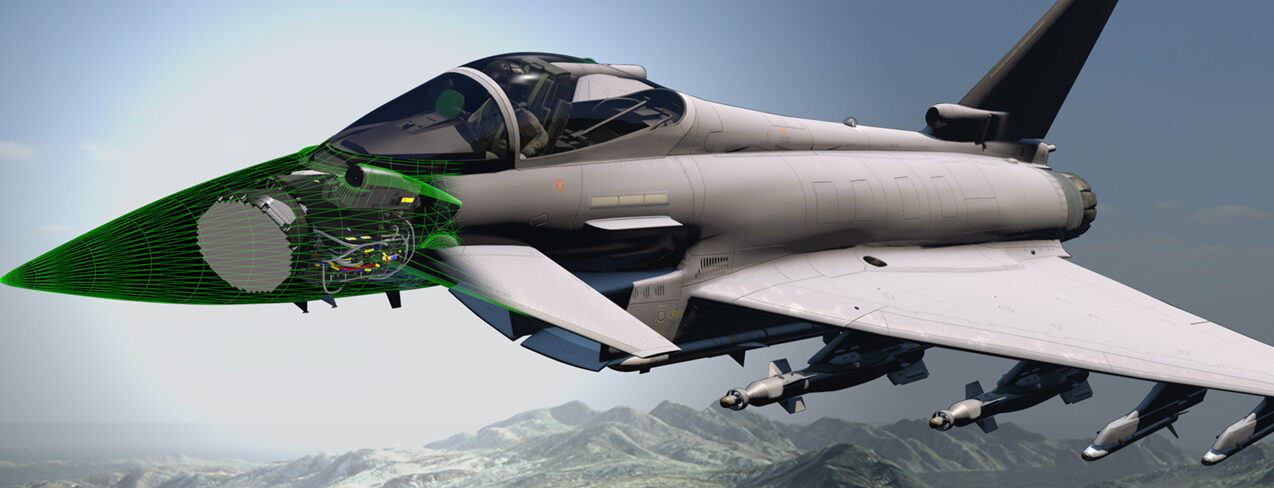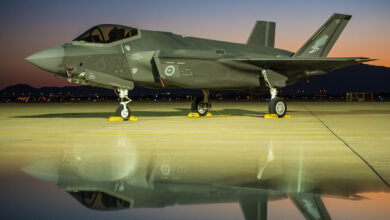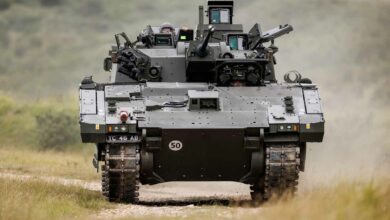UK’s New Electronic Warfare Radar Tested on Eurofighter Jet for First Time
In a first, a Royal Air Force Eurofighter Typhoon combat jet took to the skies with its new electronic warfare (EW) radar from Leonardo.
Called the European Common Radar System Mark 2 (ECRS Mk2), the tech is designed to give pilots the ability to locate, identify, and suppress hostile air defenses with high precision.
It also enables fighter jets to disrupt enemy radars through powerful electronic jamming while maintaining a safe distance from threats.
The recent flight test aimed to assess the radar’s compatibility with the Typhoon aircraft in preparation for its initial production and fielding.
Earlier this year, the ECRS Mk2 underwent ground-based testing before being installed on the aircraft.
“This is another landmark moment in this strategically important program which will provide the RAF with battle-winning technology that gives them the edge to protect the nation,” UK Defence Equipment & Support (DE&S) official Nick Moore said.
“The ECRS Mk2 radar will further transform Eurofighter Typhoon’s control of the air and provide exceptional capability our adversaries will struggle to match.”
‘Beyond Just a Radar’
The ECRS Mk2 was developed to address the formidable challenge of effectively detecting, identifying, and countering advanced enemy communications and radar systems.
It represents a significant upgrade from the currently in-service ECRS Mk0 radar, giving pilots enhanced situational awareness in the battlespace.
The new radar functions as a multi-role system that offers capabilities beyond standard radars, as it not only detects hostile signals but engages in electronic attack.
Unlike other radar systems, the ECRS Mk2 can reportedly operate across a much broader range of the electromagnetic spectrum, delivering a “massive advantage” against adversaries.
“The development of the ECRS Mk2 is fully using the UK’s world-class radar design skills,” chief engineer Tim Bungey noted. “Over the past few months, its processor, receiver and antenna power supply and control units have all been re-engineered from the prototype design to further enhance [its] capacity, capability, and performance.”












